VitalCheck, Fordham and You
Fordham prepares to reopen campus this fall with COVID-19 precautions, but will it be enough?
Students returning to campus in the fall are required to use a daily screening app called VitalCheck. Fordham’s preventative measures against COVID-19, however, are ultimately dependent on how seriously students will be taking precautions, both on and off campus.
August 20, 2020
As the outbreak of COVID-19 continues to spread across the U.S., colleges and universities have been faced with the challenge of educating students while also keeping them safe. As Fordham prepares for an in-person and on-campus semester, the university has taken health precautions that will impact students, faculty and employees’ experiences on campus.
Community members planning on returning to campus will be required to utilize a screening program called VitalCheck. All students also must go through a COVID-19 orientation, regardless of whether or not they’re returning to campus.
Keith Eldredge, dean of students at Lincoln Center, clarified that VitalCheck is not an app but rather an online database. Every morning, community members will receive “a daily text” by VitalCheck. Students can adjust when they receive the notification. VitalCheck can additionally be accessed via email if the user chooses.
When accessing VitalCheck, users will be asked whether they’ve experienced a list of COVID-19 symptoms, such as a cough, chills, fever, shortness of breath, or loss of sense of taste and smell; whether they’ve been traveling from a state with increasing infection rates; or whether they’ve been in contact with someone who has recently tested positive for COVID-19.
Mask wearing will be required on campus in a combined effort to not only limit the spread and transmission of respiratory droplets but also to reduce the chances of asymptomatic individuals from inadvertently infecting others.
Wearing a mask has proven to be proven to be one of the most effective methods of preventing transmission of the virus and is highly recommended. The mask blocks a person’s mouth and nose from releasing potentially COVID-19-laden respiratory droplets. Social distancing will also be enforced on campus, with all classes and gathering areas on campus requiring all community members to keep at least six feet away from each other.
Though the Centers for Disease Control and Prevention (CDC) recommends keeping at least six feet apart from others, some studies have found at least 3 feet as effective enough. Other studies have found the opposite, recommending at least 10 feet to sufficiently prevent risk of infection from others.
Robert Dineen, director of Public Safety at Lincoln Center, said that the university has ordered over 100,000 masks and that all community members will be given four for free, in addition to disposable face coverings for guests and visitors.
The university’s enforcement of mask wearing is in line with CDC guidelines for monitoring potential asymptomatic individuals, which recommends routinely testing all inhabitants in a communal setting.
VitalCheck offers two options to respond: “no to all above” or “yes to some of the above.” Eldredge described that if the latter is selected, VitalCheck will ask them to confirm before connecting them to a doctor via a telehealth meeting — an online call with an accredited physician.
Fordham originally planned on checking everyone’s temperature when they enter campus but switched to VitalCheck in order to provide easier access to medical help for concerned community members.
“Rather than saying ‘alright, go figure it out,’ we just want students to contact a medical professional,” Eldredge said. “The VitalCheck gives you a quick and easy system to schedule a telehealth with a doctor right then.”
Eldredge clarified that the university would not receive any personal details if a student reports symptoms on VitalCheck, saying “all we get is ‘student is cleared’ or ‘student is not cleared.’”
Public Safety will also be overseeing if students have been cleared through VitalCheck, according to Eldredge.
“There’s an automatic feed between the VitalCheck database system for both employees and students (and) Fordham’s ID card system. So just like how you normally take your Fordham ID and put it near the card reader, Public Safety will know if you’re both registered for classes and are cleared by VitalCheck to enter campus for the day.”
Fordham staff members are also using VitalCheck. “Every Fordham employee went or is going through a telemed visit with doctors, and (is) self reporting their physical health via VitalCheck each day,” Dineen stated over email.
All spaces on campus are also being rearranged to allow for social distancing, with classes being reduced and students spread six feet apart from each other in all social and academic areas. “In any situation where you’re congregated for 10 minutes or more, you’ll be staying six feet apart,” Eldredge said.
Jet hand dryers, which have been found to help spread the coronavirus, have been shut off and replaced with paper towels to reduce the virus’s chances of spreading.
All incoming students and faculty have also been required to get tested for COVID-19 at least a week before coming to campus. The initial screenings will be followed by periodic testing of the Fordham community in order to screen for asymptomatic individuals.
Fordham partnered with the Broad Institute to offer testing on campus. University Health Services staff will be administering the tests, and the Health Centers on both campuses will have different staff.
COVID-19 tests are already being conducted on campus. Olive Zoda, Fordham College at Lincoln Center (FCLC) ’23, received a test in a reserved room in McMahon Hall. “They didn’t tell me a specified time range but other people I know said they were told 48 hours,” Zoda said.
Students returning to campus have had different responses to Fordham’s precautions. Max Balanevsky, Gabelli School of Business (GSB) ’22, felt that the risk of COVID-19 spreading on campus is already limited due to reduced dorm and class sizes.
“I can’t speak to the student body in general, but I, along with most of the people that I know are almost entirely online,” Balanevsky, who has only one class scheduled to meet in-person, said. Balanevsky expressed anxiety over how the first few weeks will unfold, saying, “we’ll have to see what life on campus actually looks like when things kick off in a few weeks, but I am not optimistic it will go well.”
Balanevsky’s fears are not without precedent. The University of North Carolina (UNC) at Chapel Hill originally reopened its campus, only to witness a surge of cases in student housing and dorm rooms after only a week. UNC will now be conducting all classes online.
However, Ishaan Maisuria, GSB ’22, didn’t understand why the campus was reopening when many classes have already been moved online, saying, “it should only be kids who need to do in person labs who should be going to campus.” Maisuria will be taking all of his classes online from home.
Eldredge acknowledged the very real possibility of a community member becoming infected. “I’d say it’s almost inevitable that we’re going to have a member of the community — student or employee — test positive,” Eldredge said, assuring that affected community members would be quarantined and regularly checked to assure their own health.
Regardless of what measures are put in place, Eldredge stressed students’ responsibilities to adhere to social distancing guidelines, both on and off campus. “We can have all the policies, procedures and protocols that the university wants to have,” Eldredge said. “But we’ll still need the cooperation of the university community.”

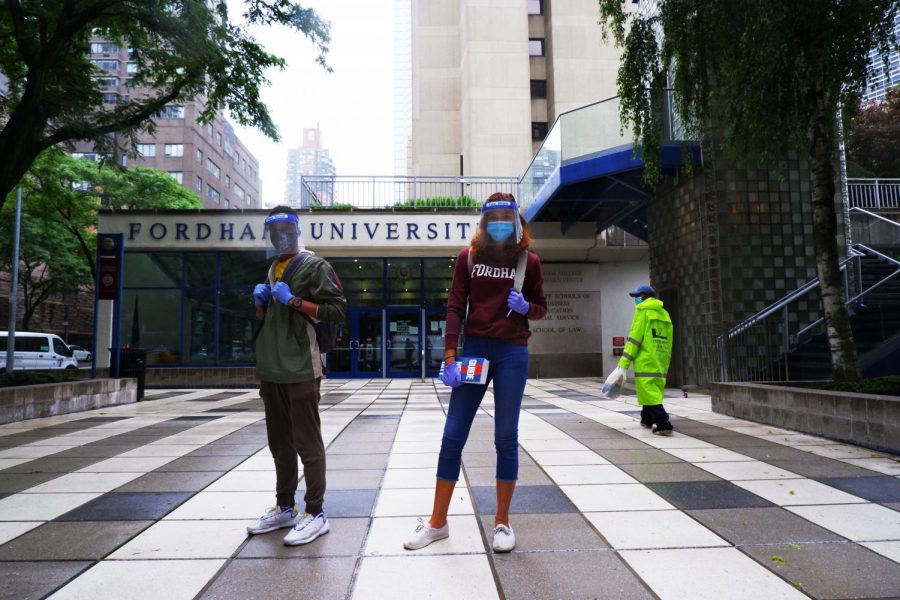
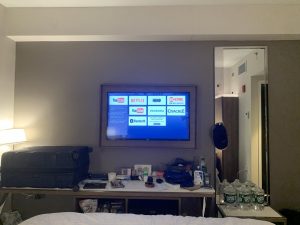
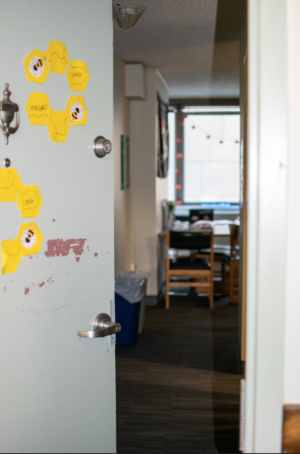
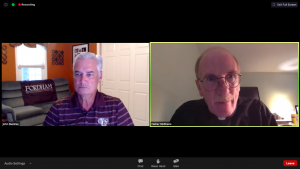
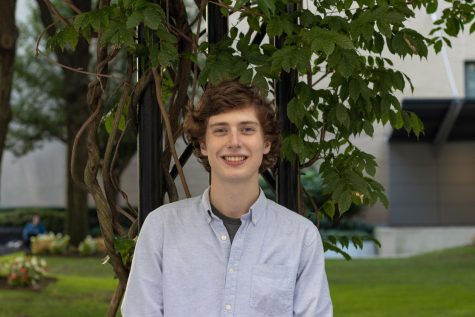
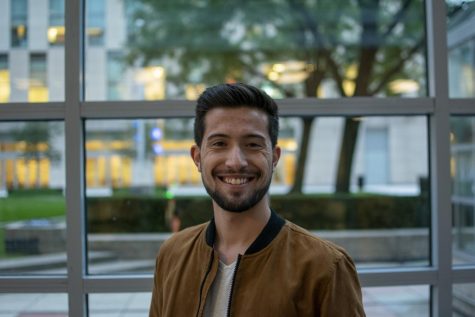











Sofia Bedoshvili • Feb 9, 2022 at 6:27 pm
Hi , I just received an email that my classmate has omicron, my class begins in 5 minutes ,what should I do?